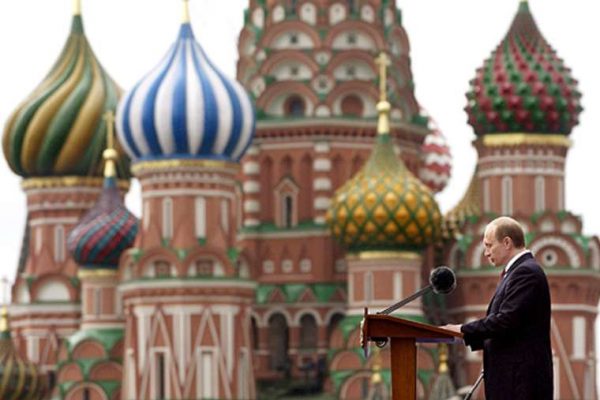The Shifts and the Shocks: What We’ve Learned—and Still Have to Learn—from the Financial Crisis
Martin Wolf
Penguin, $35 (cloth)
As a professional hazard, I have read so many books on the global financial crisis of 2007–08—its causes, consequences, and dangers that lie ahead—that if stacked neatly, they would stand taller than I. Many of them are excellent, some even outstanding. But if you are only going to read one book, it should be Martin Wolf’s The Shifts and the Shocks.
For the most part, partisans and pundits fly on autopilot, making mountains out of cherry-picked bits of data and forcing disconfirming facts to conform to their pre-existing worldviews. But Wolf, associate editor and chief economics commentator at the Financial Times, has taken a different approach. Confronted with the challenge of the global financial crisis, he has carefully sifted through the evidence, reassessed assumptions, and revised assessments.
Wolf’s two previous books established him as a champion of globalization. Why Globalization Works (2004) offered a spirited and comprehensive defense—even a celebration—of the onward march of unfettered market forces. Fixing Global Finance (2008, but written before the global financial crisis) was a book of modest reforms designed to smooth out the turbulence generated by financial liberalization while remaining bullish on the overall project. And Wolf very much remains a classical liberal with a “belief in the superiority of the market economy” and an “abiding skepticism about the wisdom and capacity of an intrusive government.” In The Shifts and the Shocks, Wolf comes to save globalization, not to reverse it.
Nevertheless, he is chastened: he “did not expect . . . so enormous a financial crisis,” and was “guilty of working with a mental model of the economy that did not allow” for the possibility of such a crisis. Wolf cheered the free market revolutions of the 1980s. But the global financial crisis has revealed that “the financially driven capitalism that emerged after the market-oriented counter-revolution has proved too much of a good thing,” and “to pretend that one can return to the intellectual and policymaking status quo ante is profoundly mistaken.”
These are momentous conclusions, and The Shifts and the Shocks backs them up. Wolf is judicious in his analysis and his argumentation is a model of clarity. The crisis was brought about by financial liberalization, the globalization of finance, innovations that allowed for the creation of ever more complex financial products, increases in leverage, and incentives that encouraged irresponsible risk taking. Crucial to Wolf’s argument is that “economic, financial, intellectual and political elites misunderstood the consequences of headlong financial liberalization,” and this has skewed efforts at reform. Instead of trying to fix a fundamentally flawed financial system, the reform effort has been conservative: “an attempt to preserve the essence of a system we already know is extremely fragile, and which is sure to implode once again.” Another key contribution of the book is to call attention to enduring dysfunctions in the international economy, problems seen most visibly in the Eurozone. Europe’s problems offer a microcosm of the inevitable fights over the burdens of adjustment generated by any international monetary and financial system. The euro’s problems are pressing, and intense, and threaten the stability of the world’s second largest economy. Finally, Wolf offers a positive agenda for moving forward: more aggressive fiscal policy, markedly increased capital requirements (for banks), and institutional measures to bring about greater symmetry in the macroeconomic adjustment process (to assign greater responsibility to creditor countries).
The Shifts and the Shocks holds that we are where we are because governments failed in their basic functions as guardians of the public interest due to “naïve ideas” about the self-regulating nature of the market (most obviously associated with the pronouncements of former U.S. Federal Reserve Board Chairman Alan Greenspan). The root of the problem is that finance is simply different from other sectors of the economy, because its activities generate systemic risk. If a retailer fails, its competitors cheer and its customers move on. When a big bank fails, it can set off a chain reaction that drags down counterparties and unleash a crisis that roars through the economy like an uncontrolled forest fire. But in their disregard for systemic risk, “the ignorance and arrogance of academics and policymakers, and the shortsightedness and grossly misdirected incentives of managers and traders, made the western financial system increasingly fragile in the decades leading up to the crisis.”
Wolf comes to save globalization, not to reverse it.
Those pathologies produced a financial crisis even worse than the one that led to the Great Depression—though this time the consequences were less severe. As Wolf explains, this was due to superior public policy, at least initially—in particular a flood of liquidity and the willingness to tolerate deficit spending, largely by letting automatic fiscal stabilizers do their job. Unfortunately, the response was incomplete and the reforms that followed inadequate. Dysfunctional politics and bad ideas resulted in stimulus measures that were “both too small and prematurely abandoned.” By mid-2010, misguided austerity measures ruled the day, and even though the worst was avoided, the Great Recession was allowed to take hold, and linger. Reform measures (such as Basel III) fail to address fundamental problems (like making banks better able to bear losses without collapsing); others, like Dodd-Frank, have been rendered impotent by exceptions and obfuscating complexities. (Ultimately, the Dodd-Frank act came to 848 pages supplemented by over 10,000 pages of rules. Similarly, the Volcker rule grew from a three-page memo to a ten-page document to hundreds of pages of legislation.)
Paralysis over repair and reform reflect the fact that, in understanding financial crises, there is a fundamental divide that cannot be papered over. One school of thought holds that crises are common and a naturally occurring outcome of a financial system left untended; the other maintains that finance, left to its own devices, can govern itself and problems that emerge in the financial system are self-correcting. It is hard to assess this latter view as anything but discredited in whole cloth. “The system is always fragile. From time to time it becomes extremely fragile,” Wolf explains. “A financially driven globalized market economy . . . is hugely crisis prone.”
Yet that system endures, due to ideas and interest. The interest-based impetus behind this is not mysterious—some have gained fantastic riches owning shares in that casino, and that wealth has given them privileged access to the halls of political power. But as Wolf emphasizes, the more insidious role of ideas should not be underestimated. “The economics establishment failed”—failed to account for systemic risk, failed to understand how the macroeconomy worked, and failed by building dazzling models that, by assumption, “ruled out what most mattered.” To find the economic theory capable of understanding the global financial crisis, he explains, one must turn to the work of John Maynard Keynes, Charles Kindleberger, and Hyman Minsky. Elsewhere I have dubbed this troika KKM.
But for Wolf, this is anything but a case of “once a Keynesian, always a Keynesian.” In Why Globalization Works Keynes is twice mentioned and twice dismissed, and neither Kindleberger nor Minsky make an appearance; in Fixing Global Finance only Kindleberger has a cameo. This bracing intellectual openness and honesty is another reason why this great book demands serious attention—especially because, unfortunately, this essential turn has not been embraced by the mainstream of the economics profession. “Many of today’s leading macroeconomic theorists . . . regard the work of John Maynard Keynes as embarrassing and that of the post-Keynesian Hyman Minsky with something bordering on contempt,” Wolf (all too accurately) reports. “Charles Kindleberger . . . was an economic historian and, as a result, far below the salt where princes of academic economics sat.” In general, with some admirable exceptions, economics, as a discipline, has weathered the epic storm of the crisis largely unchanged, its robust sails of self-confidence unbowed by castigating winds. The old rules and the old models endure because the purveyors of interest and ideas are largely unrepentant.
Beyond the dangerous and enduring fragility of the financial system, The Shifts and the Shocks also attends to the underlying problems of macroeconomic imbalances, in general and with particular reference to the Eurozone. The global financial crisis exposed the economic incoherence of the euro project and laid bare the bitter distributional politics that loom beneath the surface of any monetary order. Germany’s insistence on retaining a huge trade surplus and keeping inflation extremely low forces considerable burdens of adjustment onto its European partners, demands made easier by the rules of the system. Indeed, the even-tempered, invariably judicious Wolf raises his voice only twice, each time to chastise ruinous German policies and the shortsighted, self-satisfied attitudes that sustain them. “The euro has been a disaster,” he argues, but there is no easy way out. Without basic reforms that require the burdens of adjustment to be shared more equally, a political backlash against Kafkaesque austerity could lead to a disorderly unraveling of the monetary union, with profound and global reverberations.
The right policies were chosen but applied half-heartedly and incompletely.
On all of these fronts, Wolf does not simply observe problems, he proposes solutions (as ever, walking through the pros, cons, and potential objections to each). The shift to austerity was premature and unwise—economies need more support—and also problematic, as it left second-best and potentially risky monetary experiments as the only techniques available to policymakers trying to resuscitate economies in desperate need of life support. Wolf argues that it would be better to return to a more ambitious fiscal stimulus and stop asking too much of monetary policy. This notion will meet with table-pounding partisan opposition, but it is not a radical suggestion—it is very much in tune with what Conservative Republican heavyweight Martin Feldstein has proposed.
Given the perennial dangers of systemic risk—a problem the market, left to its own devices, is incapable of addressing—Wolf also sees the need for a regulatory body tasked to be on the alert for such risks as they inevitably develop. Most controversially, Wolf insists that we “force banks to fund themselves with equity to a far greater extent than they do today.” This too will lead to howls of protest—but those that might add their voice to that din would be well served by first reading through the pages Wolf devotes to defending his logic.
It is important to remember that Wolf has not shed his ideological spots—he has simply updated his analytical apparatus. “Economic globalization has produced impressive results,” which “nothing in this book contradicts,” Wolf (correctly) insists. “But financial crises are not among those wonderful results. On the contrary, they are a plague.” Finance, finally, is different from other sectors of the economy. “Indeed, it is far from clear that the globalization of debt-creating flows, particularly those created by banks, has brought much, if any, benefit to the world economy, as opposed to those who work in the financial industry.” (Or as Paul Volcker opined, before the crisis hit, “I don’t think these techniques add much to the sum of human endeavor.”)
One thing The Shifts and the Shocks makes clear is that there is an urgent need for fundamental reform. The current system is “irretrievably unstable,” and “that we should largely let the pre-crisis way of running the world economy and the financial system continue . . . is grotesquely dangerous.” Yet Wolf expects the status quo to endure, especially because of the enormous wealth and lobbying clout of the financial sector. The most harrowing passages of this book point towards the implications of this—and what will likely happen “after the next crisis.” This time, the right policies were initially chosen; but, applied half-heartedly and incompletely, such measures are now saddled with the baggage of their presumed failure by the general public. Moreover, there is also the perception (here more accurate) that in the wake of the crisis, “well-connected insiders” are “shielded from loss but impose massive costs on everybody else.” This has both fueled the rise of anxious and angry populists on both the left and right, and likely exhausted the political will that would be necessary to introduce the emergency measures required to deal with the next big crisis.
It is not a feel-good story. But if you want to understand where we are, how we got here, and the mortal dangers that lie ahead, read this book.








